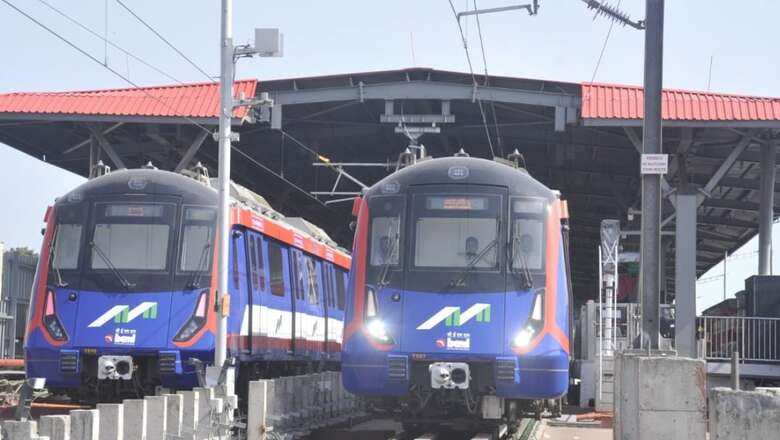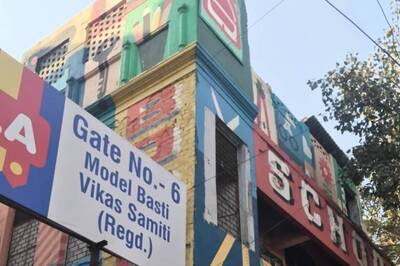
views
In a major boon for Mumbai residents, the much-awaited Mumbai Metro Lines 2A and 7 were opened to the public on January 20, resulting in a significant reduction of travel time between Dahisar and Andheri.
The new metro lines have been instrumental in easing congestion on the Western Express Highway and SV Road, bringing much-needed respite to commuters in the western and eastern suburban areas.
While the Metro 2A and 7 lines are saving time, travellers are left stuck due to a lack of last-mile connectivity at some of the destination stations. While certain stations have autorickshaws available as soon as you exit an elevated Metro station, passengers have to face being overcharged by auto drivers, reported The Times of India.
The auto drivers charges refuse to go as per the meter and set their on prices. Keeping this in mind, the Mumbai transport department has initiated a programme for last-mile connectivity of Metro commuters. Surveys are currently being done outside 17 metro stations on Line 2A and 14 stations on Line 7 in order to finalize at least 90 share auto routes.
In a collaborative effort, the transport department has sought assistance from the city’s Regional Transport Office (RTOs) and has assigned inspectors in association with traffic police and the Brihanmumbai Municipal Corporation (BMC) to identify potential autorickshaw routes outside the metro stations. As part of the plan, each metro station will be linked to up to three share auto routes that connect to local commercial hubs and housing colonies.
The latest reports indicate that Mumbai has a staggering 2.32 lakh autos plying on its roads, out of which around 1 lakh operate on current share routes. Under the new initiative, about 3,000 autos will be deployed to serve 90 feeder routes outside Metro 2A and 7 stations, leading to an estimated 50,000 commuters enjoying seamless connectivity to their destinations from metro stations, and the numbers are projected to rise in the upcoming months.
Furthermore, this well-thought-out scheme will not only benefit the commuters but also provide a 33 percent increase in fare collectively for autorickshaw drivers. The share auto service will implement a base fare of Rs 10 per passenger per feeder route, ensuring affordable and convenient transportation for the public.
In a bid to streamline the system, the authorities will also crack down on approximately 87 illegal share routes operating near metro stations, bringing order and regulation to the last-mile connectivity landscape.
With the successful launch of Mumbai Metro Lines 2A and 7, combined with the robust last-mile connectivity project, Mumbai’s transportation ecosystem is witnessing a transformative shift, delivering unparalleled comfort and convenience to its commuters.




















Comments
0 comment